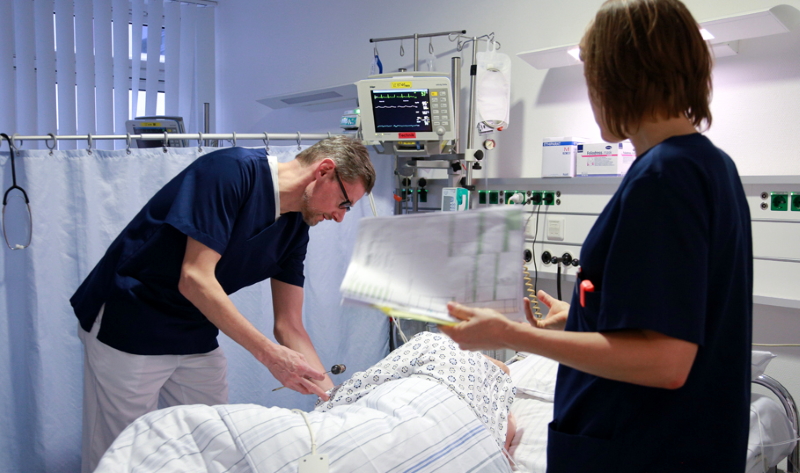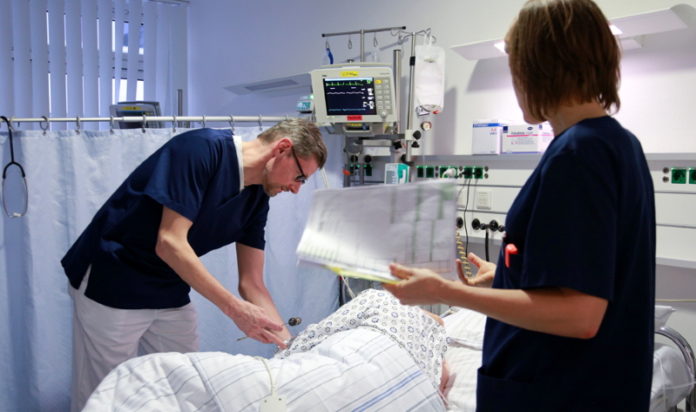
[ad_1]


Moers. Information on World Stroke Day
“Unfortunately, there are still too few people who call the emergency services directly in case of stroke”, says prof. Stefan Isenmann, head of neurology at St. Josef Hospital, “Every stroke is an emergency and time is the brain.” People often wait too long to see if symptoms and warning signs go away on their own. “This can have fatal consequences,” says prof. Isenmann, “Precious time is wasted here, which we doctors in the emergency room and special stroke ward would miss later on”. for fear of infection. Extensive precautions are taken at St. Josef Hospital to help patients quickly and in a targeted manner and at the same time to protect everyone involved – including the doctor and nursing staff – from infection.
In a stroke, nerve cells die irretrievably due to an acute circulatory disorder in the brain. Therefore, Prof. Dr. On the occasion of World Stroke Day on October 29, Isenmann stresses how important it is for the course of the disease that if a stroke is suspected – even if there are temporary or only mild signs – immediately for medical treatment in a suitable hospital with a the neurological stroke unit is brought. St. Josef Hospital has a nationally certified special stroke ward, whose doctors are on duty around the clock and ensure particularly intensive care for stroke patients. This includes not only continuous monitoring of blood pressure, temperature, heart rate and heart rate, but also targeted drug therapy. However, treatment begins immediately in the emergency room: with a clinical examination, head imaging, targeted vascular imaging, and, if necessary and possible, opening the occluded blood vessels in the brain with drugs or catheter.
There are around 250,000 stroke patients in Germany alone every year. The risk of a stroke increases with age, but younger ones can also be affected. Prof. Isenmann describes the characteristic signs of a stroke as follows: “Suddenly, neurological deficits occur, such as paralysis of an arm or a complete half of the face, gait disturbances or even speech or vision disturbances.”
An aid for the detection of a stroke is the so-called FAST test, with which it is possible to check the suspicion of a stroke. “FAST is composed of the English terms face, arms, word and time”, explains the head physician, “ask the person to smile: if the corner of the mouth is drooping, this indicates paralysis. Ask the person to stretch their arms forward with the palms facing up. With hemiplegia, one arm falls or turns. Punctual speech can be a language disorder. If the patient is unable to repeat a simple sentence, it is likely that it is a speech disorder. “
If any of the symptoms described are present, it is extremely important to call the emergency number 112 immediately and take the stroke patient to the hospital. The faster the treatment, the more severe disabilities can be avoided.
Source link